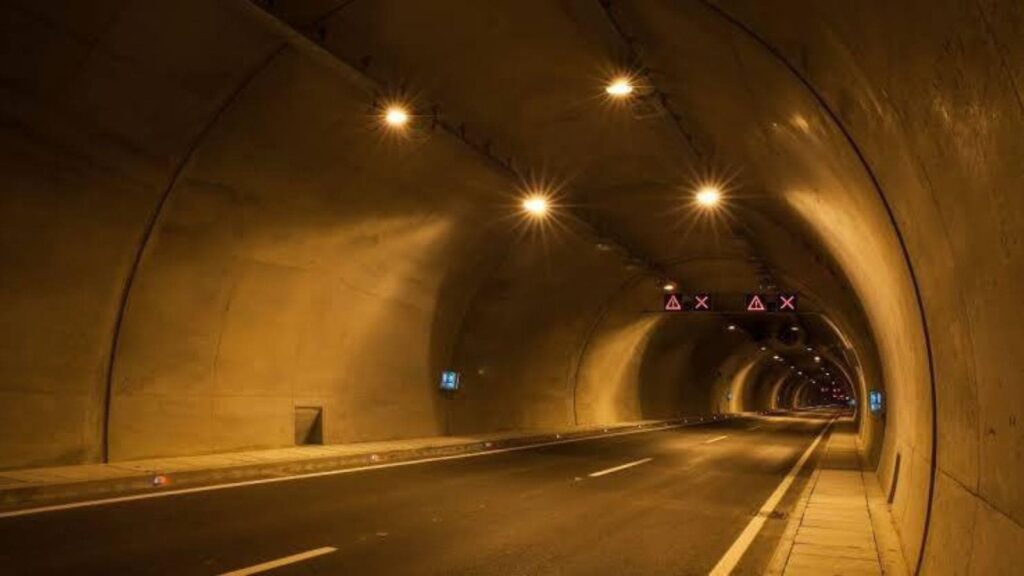Despite extensive criticism from several corners, Bengaluru Smart Infrastructure Limited (B-SMILE) has invited international competitive bids for the construction of a three-lane underground twin tunnel road from Hebbal Esteem Mall Junction to Silk Board KSRP Junction, aiming to transform urban mobility along the city’s busy north-south corridor.
The massive infrastructure initiative, with an estimated cost of Rs 17,698 crore (excluding GST), will be implemented under the modified build-own-operate-transfer (BOOT) model and includes operation and maintenance responsibilities.
The project is split into two packages—Hebbal to Seshadri Road and Seshadri Road to Silk Board—with estimated costs of Rs 8,770 crore and Rs 8,928 crore, respectively. The proposed tunnel, spanning nearly 17 km, includes multiple entry and exit ramps and is expected to significantly ease congestion across central Bengaluru and reduce the time travel from 90 minutes to 45 minutes. The total concession period has been set at 34 years, including a 50-month construction timeline for each package.
Tender documents will be made available on the Karnataka Public Procurement Portal starting July 15. The pre-bid meeting will be held on August 4, and the deadline for submission of tenders is September 2. B-SMILE has invited participation from contractors registered with agencies such as BBMP, CPWD, KPWD, Railways, MES, and other state or national bodies.
The proposed tunnel road, if executed as planned, will be one of the most expensive and ambitious infrastructure undertakings in Bengaluru’s history. Touted as a “pet project” of Deputy Chief Minister D K Shivakumar, the initiative has come under severe criticism from Opposition BJP leaders, civic groups, mobility experts, and environmentalists.
The government has floated global tenders even after the BBMP was called out for shoddy work of the detailed project report (DPR) prepared by Rodic Consultants at a cost of Rs 9 crore. The report was criticised for glaring errors including its references of traffic analysis to cities like Nashik and Malegaon in Maharashtra and downplaying environmental impact.
The DPR also proposes a toll of Rs 330 (one-way) for a distance of 16.6 km. The report also highlights tolls for subsequent years are calculated on the basis of a 5 per cent annual increase in wholesale price index with a 40 per cent restriction. The base year for the toll revenue is FY 2030-31. Importantly, the toll estimates have been proposed only for cars, with no mention of other vehicles. Shivakumar had earlier said that without a toll, the tunnel road project cannot go ahead.
Story continues below this ad
Bangalore South MP Tejasvi Surya came down heavily on Shivakumar on Monday, criticising the proposed tunnel road project as an unscientific and elitist initiative that sidelines the needs of the common man. He also warned of legal action if the government goes ahead with the project, which he said would violate Bengaluru’s Comprehensive Mobility Plan and sustainable transportation goals.
The BJP MP also flagged the background of the consultants involved. He pointed out that one of the firms behind the feasibility study—part of a joint venture between Lion Consultants and Altinok—has been blacklisted in Madhya Pradesh over a National Highways Authority of India (NHAI) project, he said. Meanwhile, Rodic Consultants, which prepared the DPR, were reportedly linked to a Rs 500-crore scam in Jammu & Kashmir.
Surya further alleged that the project was moving ahead without mandatory clearance from the Bengaluru Metropolitan Land Transport Authority, violating section 19 of the BMLTA Act.


